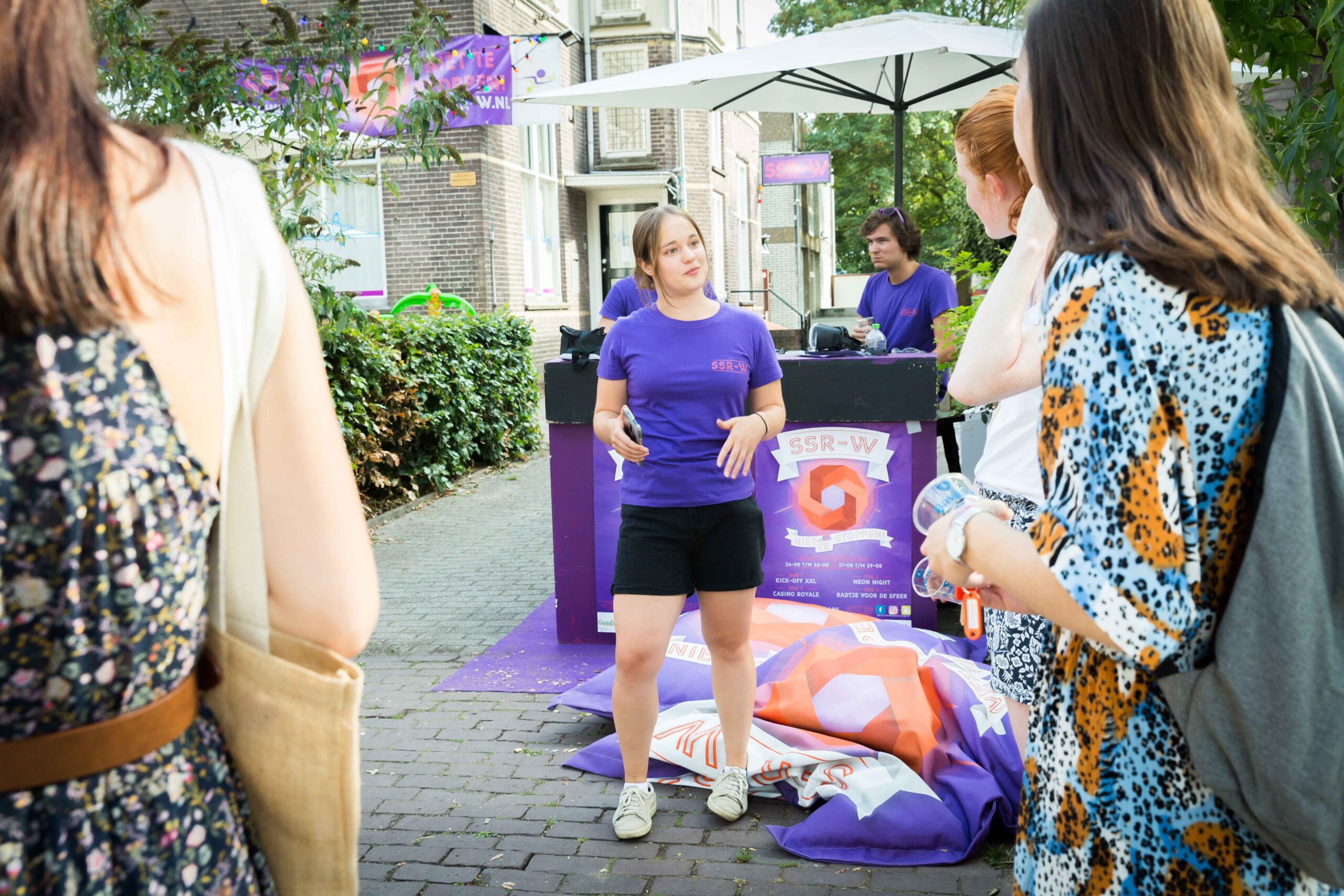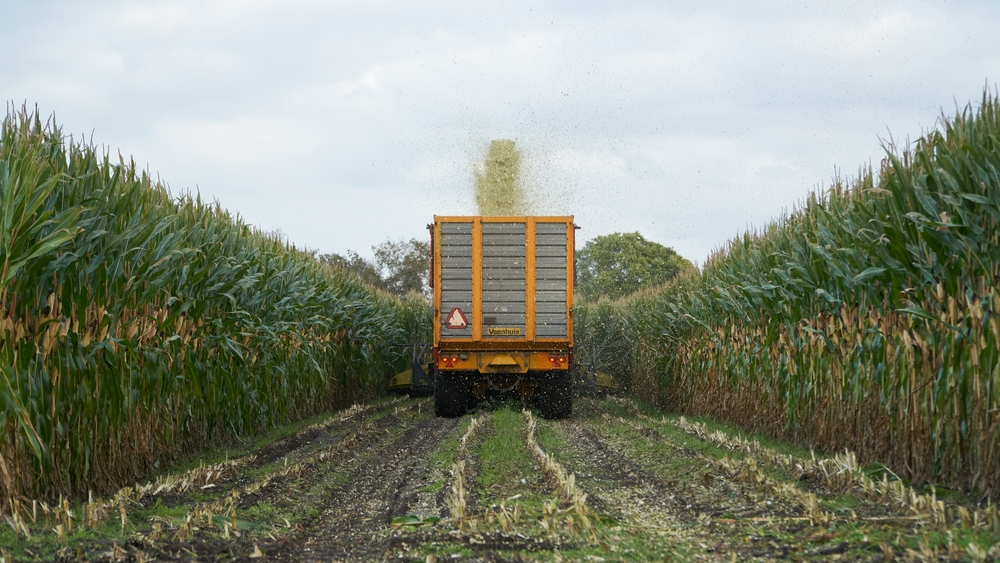Scholarship PhD students whose income has not kept up with inflation and is less than the Immigration Service’s norm of 1506 euros a month will get financial support from WUR. What do WUR people think of that?
Jelle ten Harkel, Wageningen PhD Council secretary
‘We think the compensation is a good move. It is particularly nice to see the Executive Board is taking the risk of helping these PhD students out without waiting for prior approval from the tax authority. I think it will make the PhD process easier for a lot of people; it reduces the stress from struggling to make ends meet. There are huge differences between PhD candidates on a contract and those without a contract. Our council is currently working with the graduate schools to catalogue those differences.
‘The financial differences are not so big in the first couple of years of a PhD, but they are after that. The grant remains the same but the salary of a PhD candidate on a contract increases. That difference has become even bigger recently due to the high inflation. Lots of PhD candidates are questioning the differences, given that they do the same work. But it’s not just the money. There are also differences in other employment conditions, such as insurance and parental leave. And little things, like not necessarily getting the Christmas gift box. Scholarship PhD students don’t get appreciation and recognition within the organization. This measure shows WUR is now listening to their concerns.’
Jingwei Zhou, scholarship PhD student in Hydrology and Environmental Hydraulics
‘I think it’s a good initiative from WUR. It means we will be able to maintain our living standards over the next few years. My grant is 1350 euros a month, and since last year I’ve found it difficult to make ends meet. Nearly all my money goes on day-to-day expenses. So I can’t travel much or do leisure activities. I mainly travel during off-peak hours to keep it affordable. I’m definitely pleased to get this extra money from WUR.’
Han Zuilhof, professor of Organic Chemistry
‘I’m pleased the Executive Board has now tackled this. In the last few months I’ve been paying the extra money from my own pocket, on the basis of ‘put your money where your mouth is’. But of course the amounts add up and my actions therefore needed the support of my boss, aka Mrs Zuilhof. It’s fine if the costs are partly at the expense of the PhD bonus. That way, you link the costs to the financial benefits. This support also tackles one aspect of the notorious ‘China’ article that appeared this spring in Resource. That is really good and deserves our gratitude. I hope other aspects will be tackled too so that Wageningen Campus can remain constructively welcoming to everyone with their thoughts (expressed out loud) and writings, regardless of their country of origin. In my opinion, One Planet refers not just to the amazing research institute on campus but also to the fact that we can only resolve the major problems facing us as scientists by working together, across disciplines and nations.’
Claudius van de Vijver, head of the PhD programme at graduate school PE&RC
‘Has WUR done the right thing? I can’t give a whole-hearted yes or no. I find it strange that errors made in the past have to be put right in this way. We should have been more alert in the past and done better at checking whether the grants being paid comply and continue to comply with the IND norm. I think it’s good Wageningen is now taking responsibility and making sure scholarship PhD students have a decent standard of living and aren’t struggling. Of course the underlying issue is whether you should align scholarship students with the PhD students who are employed. I think that is partly why the Executive Board took this decision.
‘The Board is demanding all grants comply with the IND norm from 1 January, including the inflation adjustment. I don’t think that will put off scholarship PhD students. We are number one internationally for agriculture and environmental sciences. The grant-issuing countries are glad they can send their PhD students to Wageningen to get knowledge and expertise.’
David Meijer, WUR Council interim secretary
‘It’s good to hear the Executive Board is doing this. It’s a step in the right direction. But of course it is still a weird situation when your close colleague, who is doing almost the same work, gets paid so differently. Even so, I’m surprised by this decision. Before the summer break, the WUR Council was told the Executive Board was working on it but the decision would depend on getting approval from the tax authorities. Now it seems they haven’t waited for that, which is strange. It’s good they are prepared to take the risk but I do wonder whether they should first have asked the WUR Council to approve this decision. I will encourage the new members to put questions about this.’
Cash for scholarship PhDs
Scholarship PhD candidates are not employed by the university; they depend on a grant they get from their country of origin. WUR has over 500 such PhD students, a fifth of the total PhD population. The grant must be more than the norm set by the Dutch Immigration and Naturalization Service (IND), the minimum amount it thinks is needed to live off. The IND won’t issue a visa if the grant is less. But due to the high inflation, many scholarship PhD candidates have been on grants under the IND norm for some time. Now the Executive Board is going to tackle the situation, even though the tax authority has not yet approved the proposed solution.
The grants will be supplemented up to the most recent IND norm, applicable as of 1 July. The supplement applies until the end of the PhD, with a maximum of four years. In return for this gift, WUR requires the granting organization to make sure the PhD candidates’ grants grow in line with inflation as of the next calendar year.
The scheme is expected to cost WUR between 2 and 2.5 million euros. Some of that money will come from the PhD bonus that chair groups get for the successful completion of a PhD project.

 Scholarship PhD students whose income has not kept up with inflation and is less than the Immigration Service’s norm of 1506 euros a month will get financial support from WUR. Photo Shutterstock
Scholarship PhD students whose income has not kept up with inflation and is less than the Immigration Service’s norm of 1506 euros a month will get financial support from WUR. Photo Shutterstock 

